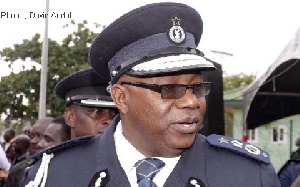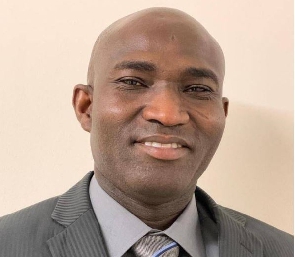Fifty-six police officers of various ranks are being probed over alleged cases of murder, extortion, robbery, among others, from January to date.
Laying this development bare in the public domain shows how far the Inspector General of Police is ready to go to clean the law enforcement agency. To succeed in the arduous task however, he needs the support of his lieutenants. As to whether this would be forthcoming, we are unable to vouch for.
For the members of the public who the law enforcement agents must serve, the presence of bad nuts in the Police Service presents an especially worrying phenomenon.
Many Ghanaians are still unable to report erring cops to the appropriate quarters for action to be taken against them.
Various reasons account for this; one of which is that victims of police misconduct do not have confidence that something will come out of such reports when they are made.
Victimisation from aggrieved law enforcement agents, who receive such reports because they too do not have clean hands, does not help matters.
It is instructive though that the Inspector General of Police and some top cops would not turn their backs on indiscipline when these get to their notice. What the Inspector General of Police should do now is make the offices of commanders friendly to members of the public.
We have said time without number that the various commanders from division to district levels and station officers should make themselves accessible to members of the public. This way cops who misconduct themselves can be reported to their superiors.
The process of cleaning this foremost law enforcement agency is not a day’s assignment but one spread over time and involving both members of the pubic and the leadership of the Police Service.
The linchpin of policing is discipline and so personnel enforcing the law should exhibit a high sense of responsibility. That is why the law imposes on them the powers to take decisions on the spot without arbitrariness. While taking such decisions the police should be without blemish. Otherwise they would be nailed by members of the public and their authority undermined.
We think that more background checks on prospective law enforcement officers should be undertaken to isolate bad nuts and those unfit for consideration for enlistment or commissioning turned back.
It is refreshing hearing the Director General of Public Affairs warn that the Service would deal with miscreants in the law enforcement agency.
There is no reason not to do so because the fastest way to destroy the integrity of the law enforcement agency is to open its recruitment process wide open without due background checks.
If within nine months so many law enforcement agents have purportedly fallen foul of the law in matters bordering on criminalities, the lesson that all is not well cannot be ignored.
But being a segment of corporate Ghana, exhibiting such traits of indiscipline is just being Ghanaian. All institutions in Ghana need overhauling.
Click to view details



Editorial News of Sunday, 12 October 2014
Source: Daily Guide

















